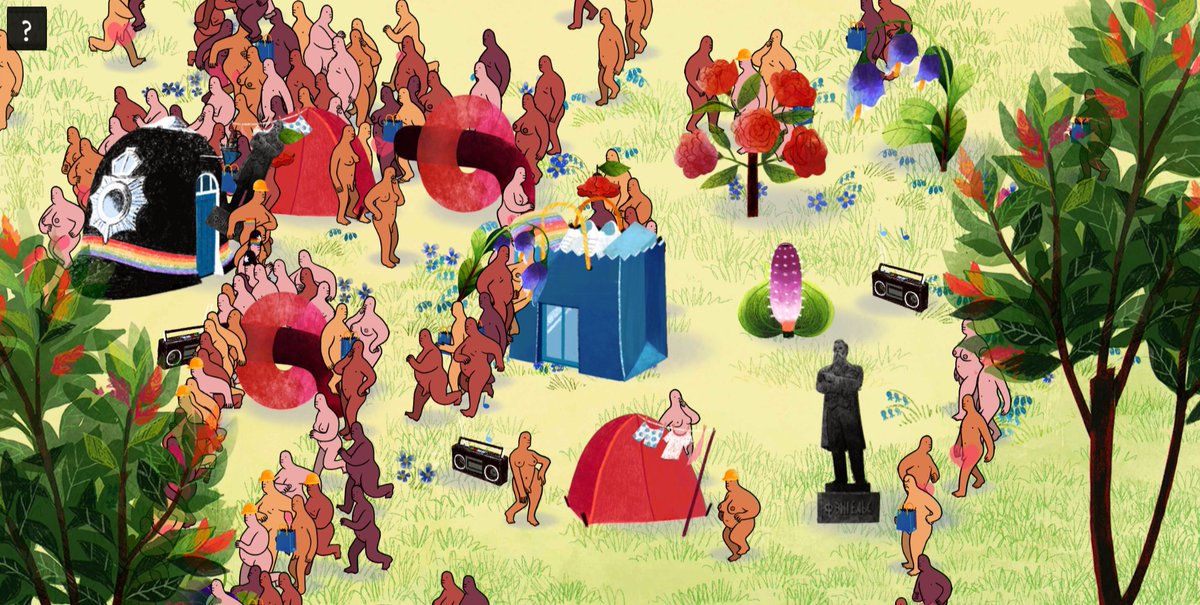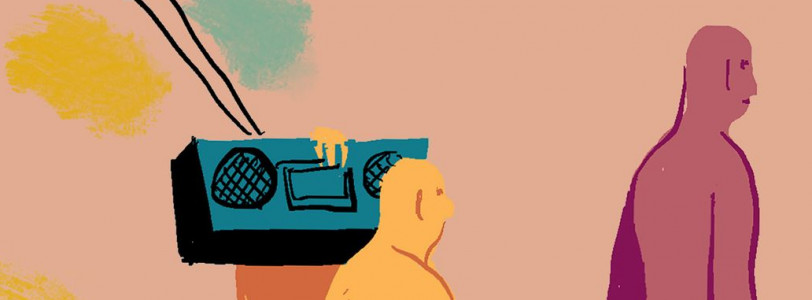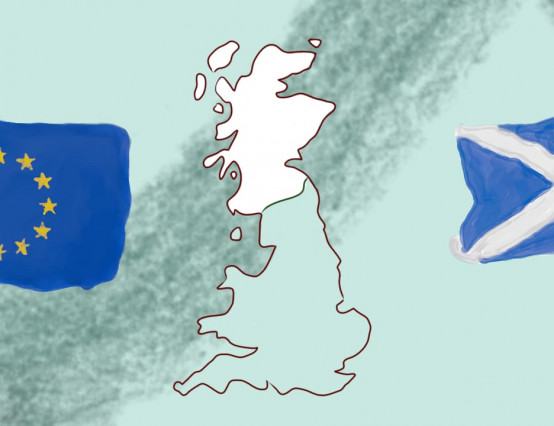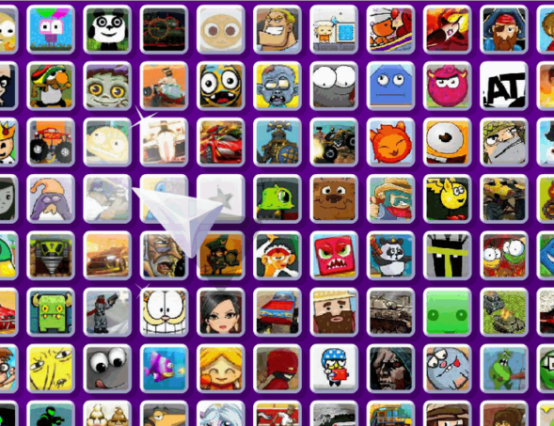We Dwell in Possibility can be played through your browser here.
Robert Yang's work in the past often explores subcultures of the queer community, always through the medium of indie games, and often with overt sexual tones. They are frequently satirical, with quite scathing things to say about our social hangups and gaming in general. His game Tearoom, for example, calls into question the acceptance of violent imagery in videogames, when sexual imagery is so restricted. He describes his standard character design as "uncanny CG beefcakes", which is one of the reasons that We Dwell in Possibility feels like such a departure.
It is part of the Virtual Factory series, which is a collection of online artwork inspired by the architecture and central tenets of a new cultural space in Manchester named The Factory. The game is currently being showcased alongside other online works as part of the Manchester International Festival. It is, at its base level, a gardening simulator. The player watches over an empty garden, which steadily becomes filled with an infinite stream of androgynous, cartoon people named 'peeps'. These peeps will sometimes bring a 'plant' with them, and attempt to place them around the garden. 'Plant' is a very loose term. In-game, plants can be trees, suggestive-looking fruits, or even statues, police stations, and small local businesses.
Once these plants are planted, if a peep happens to cross paths with one an effect will apply to them. These effects can be aesthetic, like a changing of colour, or they can be character-defining. For example, if a peep interacts with a statue of Winston Churchill, they will gain a union jack hat, and turn into a Tory. This means they will react negatively to the more suggestive plants, and attempt to remove them.
This is where the player can intervene. When you see a conservative peep walking off with a suspicious-looking aubergine, you are able to pluck the plant out of their hands and return it to the garden. You are also free to remove any plant you don't like, and even direct the flow of peeps. The player decides how much they want to influence the garden. In an almost God-like role, they choose how to shape the space.
Following on from this Eden-esque callback, the peeps are nude, which gives Yang ample room to depict a fluidity of sex and gender. There are 8 different body configurations for the peeps, based around body shape and genitalia, which leaves 48 possible combinations of physical traits. These traits are not set in stone, however, as engaging with certain plants can alter the anatomy of the peeps, switching up their sexual organs on a dime. This was an immensely evocative dynamic. It turned the experience into a sort of queer escapism, where there could be freedom of gender away from society's obsessive repression. The design of the peeps is also very charming, with cartoonist and illustrator Eleanor Davis imbibing them all with a soft, friendly, and rather vacant look, the effect of which made you feel like a stressed-out nursery teacher trying to ferry their kids around a room.
The cycle of the garden takes ten minutes to complete, starting in the morning and ending at night. Every cycle is different, which means I can only speak to my own experience. This is key to the artistry of We Dwell in Possibility. Yang's intention is for the player's garden to function as a reflection of their own values, a snapshot of their own thoughts on bodies, politics, and sex. You decide on how much capitalism is on display, how sexual the landscape can become, how much of a police presence there is.

I only became aware of these ideas once I had finished playing through the game a couple of times. It was only afterwards that I read the inspirations and notes behind the experience. As such, this gave more authenticity to what my initial gardens said about me.
For my first playthrough, I was intent on discovering every possible interaction in the game. As a result of this, I allowed there to be a substantial amount of Tory and police peeps roaming around because I thought it would be funny to see how they react to everything else. Whilst I did enjoy this, it did give me cause to reflect. Perhaps my willingness to allow these peeps to tarnish the queer freedom of the garden was because I, as a non-queer person, have the luxury of not being directly impacted by that sort of behavior. This speaks to the effectiveness of Yang's vision, when even messing around in his gardening sim can lead to personal introspection.
On my second run, I went in planning to let everything run its course without my interference. Then someone put a radio down and peeps started dancing next to it, and it looked so delightful that when a statue-inspired peep wearing what looked like a MAGA hat tried to remove the radio I broke my own rule and removed him from the game. I then tried to get as many peeps as possible to join in the boogying. In my mind the title of my second world was, "no bigots, only dance."
There were also some inexplicable moments. For example, a cupcake plant was put down, and every peep who visited it gained a cupcake, but then for some reason every cupcake peep began to crowd around the radio angrily. I don't really know the political ramifications of this, I just thought it was funny. I was too slow in realising the insidiousness of the cupcake, and eventually the cupcake peeps became the dominant lifeform in my garden.
I will say that this chaotic and random element to the game was a bit irritating at times. The controls can be quite imprecise and it often felt that the player needed more control. Perhaps I'm missing the point, this could easily be a deconstruction of the entitlement that video games inspire, but this lack of control makes Yang's intention, for the garden to be a reflection of the player's values, harder to achieve.
Overall, this is a thoroughly entertaining, vivid experience that combines adorable whimsy with genuine political reflection. Its message is muddled somewhat by the imprecise controls, but other than that I would highly recommend checking it out and building your very own paradise (or hell).









0 Comments